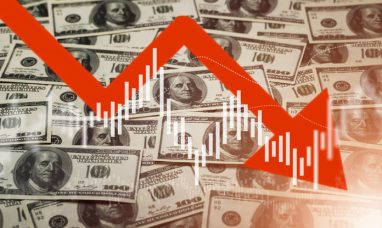Asian stock markets experienced a notable decline as they followed the lead of a significant selloff in the United States. The ripple effects of Wall Street’s downturn have been felt across major Asian indices, with investors growing increasingly anxious about the global economic outlook.
One of the primary drivers of this sentiment is the ongoing concerns about inflation and interest rate hikes by the Federal Reserve. Investors fear that the Fed’s measures to curb inflation might dampen economic growth. As a result, market participants are adjusting their portfolios to mitigate potential risks.
In Japan, the Nikkei 225 index fell sharply, echoing the declines seen in the US markets. The selloff in Japan was also influenced by a stronger yen, which tends to hurt the profitability of Japan’s export-driven companies. Similarly, South Korea’s KOSPI index registered significant losses as tech stocks, which are a substantial component of the index, took a hit.
China’s stock markets were not immune to the global trend. The Shanghai Composite Index saw a drop, driven by concerns over the country’s economic growth prospects and regulatory pressures on key sectors. The technology and real estate sectors, in particular, have been under scrutiny, affecting investor confidence.
Hong Kong’s Hang Seng Index also joined the downward trend. The index was pulled down by losses in major tech firms, reflecting the broader global tech selloff. Investors are closely watching the developments in the US, as any further signals of economic tightening could exacerbate the situation.
Amidst the market turmoil, some analysts suggest that there might be opportunities for long-term investors. They argue that the current market conditions could offer attractive entry points for those willing to weather the volatility. However, caution remains the watchword, as uncertainties about the global economic landscape persist.
Looking ahead, market participants will be keenly observing upcoming economic data releases and central bank meetings for any indications of future policy directions. The interplay between inflationary pressures and monetary policy will continue to be a focal point for investors, as they navigate the complexities of the current market environment.
Featured Image: Megapixl @ Wrangler









